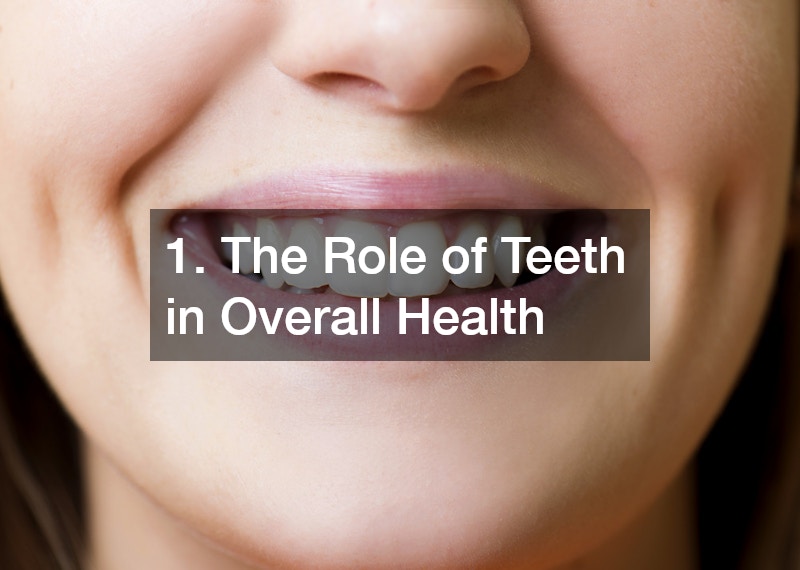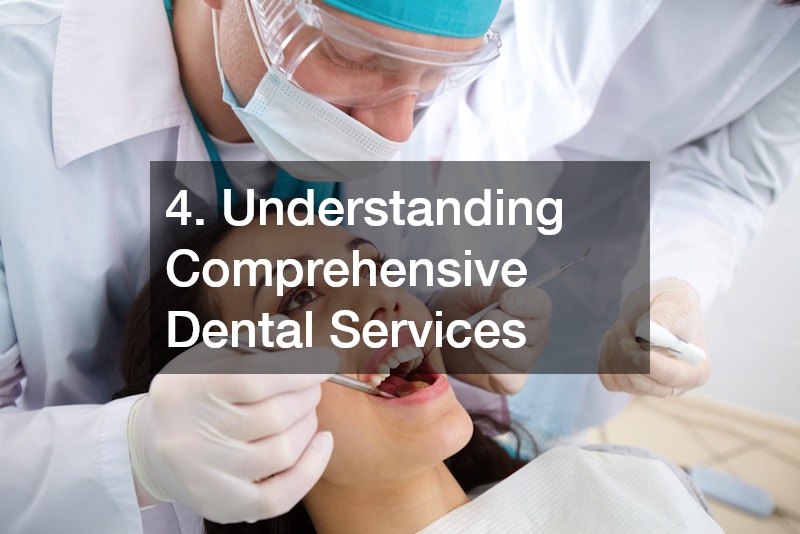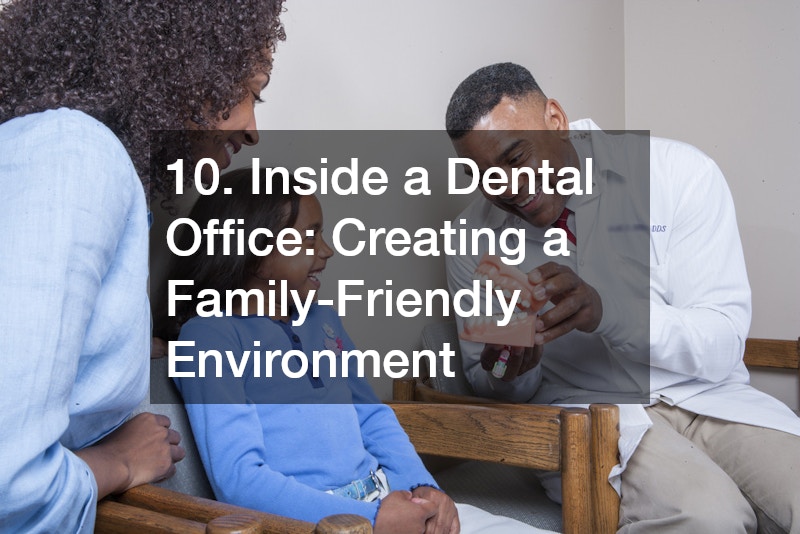Family Dentistry 101 Building Healthy Teeth Habits at Every Age
Healthy smiles begin with consistent habits, attentive care, and regular visits to dental professionals who understand the dental needs of every age group. From a child’s first tooth to an adult’s preventive exams, maintaining oral health supports not just appearance but also overall well-being. Family dentistry bridges generational gaps by creating a shared foundation of knowledge and access for parents, children, and even grandparents. It helps families build a lifelong confidence in their smiles while preventing future dental problems through early education and professional guidance.
Establishing good oral hygiene habits, whether early or later in life, is more than brushing twice a day—it’s about developing discipline, understanding the value of preventive care, and recognizing when to seek help. Proper dental care can significantly reduce the risk of cavities, gum disease, and other health issues that begin in the mouth. By learning how to care for your teeth at every stage of life, you strengthen your family’s long-term health and happiness. When families actively participate in their oral hygiene routines, they not only improve their smiles but also reinforce shared values of responsibility and self-care. This article explores the principles of comprehensive family dentistry, offering practical ways to cultivate healthier routines, minimize anxiety, and work closely with trusted professionals to maintain optimal oral health for years to come.
1. The Role of Teeth in Overall Health

Healthy teeth are fundamental to quality of life, enabling you to eat comfortably, speak clearly, and smile with confidence. They also serve as indicators of your general well-being—issues like gum inflammation or decay can signal other health concerns. Strong enamel and clean gums are built through balanced nutrition, proper brushing, and regular professional oversight. Beyond aesthetics, oral health directly affects digestion and can even influence your immune system, making it crucial to prioritize the condition of your mouth throughout life.
On a more practical level, paying attention to your teeth means maintaining a consistent daily routine that supports long-term oral health. Families can encourage this by setting shared brushing schedules and teaching children the importance of gentle, thorough cleaning. Replacing toothbrushes every three months, choosing fluoride toothpaste, and flossing daily all contribute to better hygiene. Recognizing the importance of regular checkups ensures early detection of problems, reducing the need for invasive treatments later. Strong teeth not only reflect personal care but also represent a commitment to overall health.
2. How Dental Care Shapes Lifelong Habits
Dental care is more than a set of occasional visits to a clinic—it’s a mindset that influences daily decisions about diet, hygiene, and preventive maintenance. Establishing this understanding early can help children form habits that last well into adulthood. By emphasizing the link between oral and systemic health, families can make brushing and flossing part of a wellness routine rather than a chore. Over time, this approach cultivates accountability, reduces dental anxiety, and prevents costly corrective procedures.
Parents can make dental care engaging by demonstrating good habits themselves. Turning brushing time into a family activity, setting up charts, or using mobile reminders can keep everyone on track. Encourage younger family members to observe proper technique and celebrate small milestones, such as cavity-free checkups. Investing in regular cleanings and fluoride treatments helps maintain oral hygiene and reinforces that dental health is a shared responsibility. Consistency and education together create a culture where oral care becomes second nature for all family members.
3. The Importance of a Trustworthy Dentist
A dependable dentist provides more than treatments—they act as a long-term partner in your family’s health. Developing a relationship with a practitioner who knows your history ensures continuity of care, especially when treating multiple generations. The right professional offers education, comfort, and customized treatment plans that evolve with your family’s changing needs. From the first dental visit to adult maintenance, having a familiar face reduces stress and encourages open communication about concerns or symptoms.
When choosing a dentist, focus on credentials, experience, and communication style. A good practitioner listens to patients, explains procedures clearly, and fosters a calm environment for children and adults alike. Families benefit from establishing trust with a professional who offers preventive education and emphasizes early intervention. Whether it’s advice on brushing techniques or discussions about orthodontic care, a reliable dentist can turn intimidating visits into positive learning experiences, building a foundation for lifelong oral health.
4. Understanding Comprehensive Dental Services

Comprehensive dental services form the backbone of effective oral healthcare, encompassing preventive, restorative, and cosmetic treatments. These services include everything from routine checkups to advanced procedures like crowns or implants, ensuring that patients of all ages receive appropriate care. A full-service practice allows families to manage everything in one place, reducing the need for multiple providers. Preventive measures such as sealants, fluoride treatments, and diagnostic X-rays all contribute to early detection and long-term protection.
For families, knowing what dental services are available helps them make informed decisions about treatment. Preventive care appointments every six months can catch potential problems before they worsen. Restorative options like fillings or bonding repair damage and restore function, while cosmetic treatments enhance confidence. Pediatric and senior patients benefit most from personalized plans tailored to their stage of life. By combining professional expertise with patient education, families can take full advantage of the range of care modern dentistry provides.
5. The Benefits of Regular Dental Cleanings
Professional dental cleanings are essential for maintaining oral health, even for those who brush and floss daily. Over time, plaque hardens into tartar, which cannot be removed by standard brushing. Routine cleanings remove these deposits, polish the teeth, and allow hygienists to check for gum inflammation or other early warning signs. These visits also offer an opportunity to receive fluoride treatments and professional guidance on maintaining oral hygiene at home.
Beyond cleanliness, regular dental cleanings play a key role in disease prevention. They reduce the risk of cavities, gingivitis, and periodontal disease while helping identify underlying health concerns. Scheduling cleanings twice a year keeps the mouth healthy and minimizes the likelihood of extensive treatments later. Families who stay consistent with their cleanings tend to experience fewer emergencies, and children who grow up with this routine develop stronger attitudes toward preventive care. Cleanings are a small time investment that yields lasting rewards.
6. The Value of Family Dentistry for Every Generation
Family dentistry emphasizes care that adapts to each stage of life, ensuring that everyone from toddlers to seniors receives appropriate treatment. The family dentist understands how dental needs evolve, from teaching children to brush properly to helping adults manage gum health or tooth restoration. This continuity simplifies scheduling, promotes familiarity, and allows for unified records across family members. It’s an approach built on trust, education, and convenience, designed to make oral health accessible to all.
In a practical sense, family dentistry encourages shared habits and coordinated visits. Parents can schedule appointments for themselves and their children together, turning checkups into a family routine. For older adults, family practices often accommodate mobility concerns or provide advice on dentures and implants. Because these offices cater to all age groups, they create a supportive atmosphere where each generation learns from the others. This collective approach strengthens long-term health outcomes and simplifies care management.
7. Preparing for Your Next Dental Appointment

A well-prepared dental appointment leads to a more efficient and productive visit. Patients should arrive early, bring any insurance cards, and have a list of medications or medical conditions ready. Understanding the purpose of the appointment—whether it’s a cleaning, checkup, or specific treatment—helps both patient and provider stay organized. Preparing questions about pain, sensitivity, or aesthetic concerns allows the dentist to offer the most relevant advice during the visit.
For families, coordinating dental appointments can save time and encourage consistency. Parents can model preparedness for children by showing them what to expect and explaining each step calmly. If anxiety is an issue, bringing comfort items like headphones or a book can ease the experience. It’s also beneficial to schedule follow-ups before leaving the office to maintain regular care intervals. Preparation builds confidence and ensures that each visit contributes positively to ongoing oral health.
8. What to Expect at a Modern Dentists Office
A modern dentists office is designed to provide both comfort and advanced technology. Today’s facilities often feature digital imaging, ergonomic chairs, and child-friendly amenities that make visits pleasant for every age. The environment aims to reduce anxiety while supporting precision in diagnosis and treatment. Hygienists, assistants, and administrative staff work together to deliver a seamless experience that prioritizes patient safety and satisfaction.
From a patient’s perspective, knowing what to expect in a dentists office promotes relaxation and cooperation. Families can anticipate friendly greetings, clear communication, and personalized attention. Digital tools enable faster, more accurate assessments, while sedation options can make procedures more comfortable for nervous patients. Parents should introduce children to this environment early so that the setting feels familiar. Transparency and reassurance help transform dental visits into positive, predictable experiences that contribute to lifelong oral care.
9. Choosing a Local Dentist for Long-Term Care
Selecting a trusted local dentist is one of the most important decisions for a family’s oral health. Proximity encourages consistency, making it easier to attend regular appointments and handle emergencies. A nearby provider often understands the community’s specific needs and can coordinate with local specialists when required. Accessibility ensures no delay in addressing concerns, leading to better prevention and stronger patient relationships over time.
Families should evaluate a local dentist based on reputation, communication, and offered services. Checking online reviews, asking for recommendations, and visiting the office for an initial consultation are great starting points. Prioritize professionals who make patients feel heard and respected while explaining procedures clearly. Establishing care with a neighborhood provider also strengthens accountability—patients are more likely to follow through with appointments when travel barriers are minimal. Long-term connections with local dentists foster healthier habits and peace of mind.
10. Inside a Dental Office: Creating a Family-Friendly Environment

A successful dental office balances professionalism with warmth, catering to both adults and children. Friendly staff, modern equipment, and clean spaces contribute to trust and comfort. A well-organized practice respects patient time and personal preferences, ensuring each visit runs smoothly. Many offices now incorporate technology like text reminders and online booking to simplify scheduling for busy families. This structure helps patients maintain consistent oral health without stress or confusion. Comfortable waiting areas with soothing décor, reading materials, or kid-friendly spaces can also make a big difference, reducing anxiety and encouraging positive associations with dental care from an early age.
Families can make the most of their visits by communicating openly with their providers. Sharing updates about lifestyle changes, diet, or medications helps the dental office tailor care plans effectively. Parents can also request back-to-back appointments to minimize disruption and reinforce routine care for children. The environment of a supportive, family-centered practice teaches patients of all ages that dental health is approachable, valuable, and worth maintaining for life.
Family dentistry represents a trusted, lifelong partnership between patients and professionals who care deeply about maintaining oral wellness across generations. It’s a model that values prevention as much as treatment, providing consistent education and support to every member of the household. From first checkups to senior care, each stage of life presents opportunities to reinforce healthy dental habits and strengthen the bond between families and their dental providers. These relationships not only lead to brighter smiles but also foster a sense of trust and comfort that extends far beyond the exam room.
By prioritizing preventive care, scheduling regular checkups, and encouraging open communication with your dental team, you invest in your family’s health and future. Simple actions—like attending cleanings, maintaining good brushing habits, and visiting a trusted provider regularly—create lasting results. A proactive approach helps prevent discomfort, reduce medical expenses, and preserve confidence. Whether it’s your child’s first visit or your tenth cleaning of the decade, family-centered care ensures every smile receives the attention it deserves. Healthy habits today become the foundation for strong teeth and happy smiles for a lifetime.


